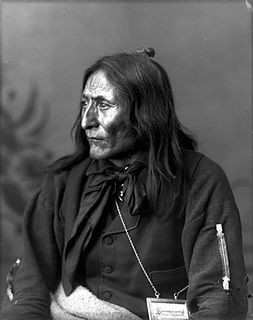A Quote by Peter Singer
Surely there will be some nonhuman animals whose lives, by any standards, are more valuable than the lives of some humans.
Related Quotes
So far as this argument is concerned nonhuman animals and infants and retarded humans are in the same category; and if we use this argument to justify experiments on nonhuman animals we have to ask ourselves whether we are also prepared to allow experiments on human infants and retarded adults; and if we make a distinction between animals and these humans, on what basis can we do it, other than a bare-faced - and morally indefensible - preference for members of our own species?
In those days, we imagined ourselves as being kept in some kind of holding pen, waiting to be released into our lives. And when the moment came, our lives -- and time itself -- would speed up. How were we to know that our lives had in any case begun, that some advantage had already been gained, some damage already inflicted? Also, that our release would only be into a larger holding pen, whose boundaries would be at first undiscernible.
What struck me whenever I visited a farm was how much more sophisticated was the life the animals were capable of living than was assumed by those exploiting them. The more we are willing to see about their lives, the more we will see. Humans seem to take perverse pleasure in attributing stupidity to animals when it is almost always entirely a question of human ignorance.
The problem is that for almost any feature of humanity that you can name, whether it's the ability to suffer, whether it's the capacity to reason, whether it's having lives that can go better or worse, there are at least some other non-human animals that have all of these features as well. So to exclude non-human animals from the range of moral concern but to include all humans, just seems morally arbitrary.
Our land is more valuable than your money. It will last forever. It will not even perish by the flames of fire. As long as the sun shines and the waters flow, this land will be here to give life to men and animals. We cannot sell the lives of men and animals. It was put here by the Great Spirit and we cannot sell it because it does not belong to us
When humans act like animals, they become the most dangerous of animals to themselves and other humans, and this is because of another critical difference between humans and animals: Whereas animals are usually restrained by the limits of physical appetites, humans have mental appetites that can be far more gross and capacious than physical ones. Only humans squander and hoard, murder and pillage because of notions.
We do some experiments in humans, some in mice, and there are some questions that can only be answered in nonhuman primates. It's true that you can't immediately say that those experiments will translate into human health, but nevertheless, it is obvious that having an understanding of human memory is going to be important for human health.
If our well-being depends upon the interaction between events in our brains and events in the world, and there are better and worse ways to secure it, then some cultures will tend to produce lives that are more worth living than others; some political persuasions will be more enlightened than others; and some world views will be mistaken in ways that cause needless human misery.
The pretense that humans are superior to nonhumans is entirely unsupportable. I have seen no compelling evidence that humans are particularly more "intelligent" than any other creature. I have had long and fruitful relationshis with many nonhuman animals, both domesticated and wild, and have reveled in the bouquet of radically different intelligences - different forms, not different "quantities" that they have introduced to me, each in his or her own time, in his or her own way.






































